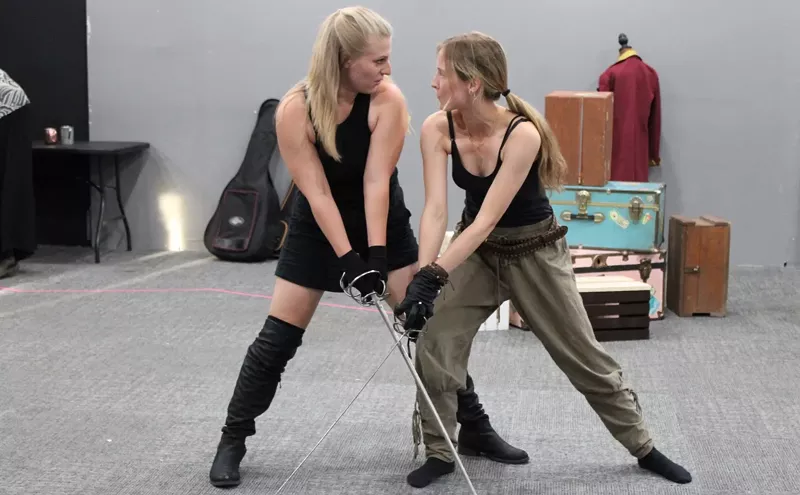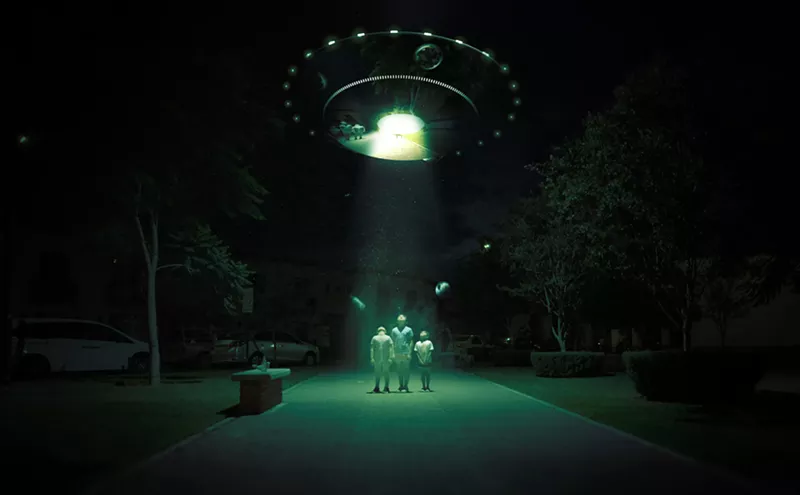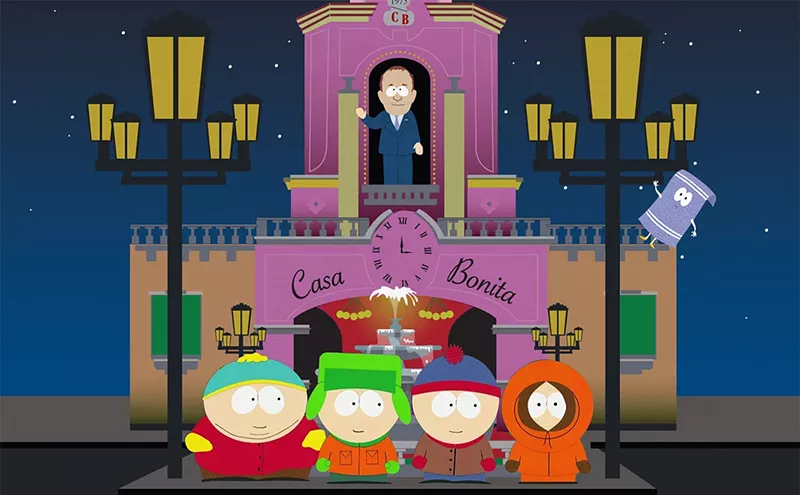I walked into the Arvada Center for the Judy Garland bio-play-musical End of the Rainbow thinking about the intense gay identification with such icons as Judy Garland, Edith Piaf and Maria Callas in the mid-twentieth century, the sheer awfulness of being gay in those days, and how it created a zeitgeist that glamorized pathos, despair and self-destruction. And I couldn't help questioning whether I was ready for a long evening spent watching a human being falling apart.
Fortunately, there's a fair amount of humor and intelligence in Peter Quilter's script, which alternates between on-stage performances and the London hotel room where Garland torments the men in her life: Anthony, her longtime pianist; and her fifth and last husband, Mickey Deans. She suffers noisily and sarcastically, boozes or searches for booze, pops pills when she can get her hands on them, flirts, abuses — does whatever she can to sate her damaged and narcissistic soul. But her bons mots are often as funny as they are disconcerting, and her willingness to pull out the throttle and go full-tilt in private life and in public — as Garland famously did — is endearing. She jokes and sings and, having realized she's accidentally taken pills intended for a mange-afflicted cocker spaniel, rolls onto her back to have her tummy scratched.
Anthony, a stand-in for her legion of gay fans, tries to protect Garland, offering unconditional love and sexless marriage in an idyllic seaside retreat. Deans at first attempts to rein in her self-destructive activities, and then, realizing there's no way she can manage a week of performances undrugged, feeds her habit — either because he wants her to succeed or because he's eyeing her earnings. Most likely both.
This show isn't a straightforward musical, but as Garland endures her performances — sometimes singing brilliantly, sometimes faltering, at one point walking off stage because an audience she's kept waiting for over an hour heckles her — we do get to hear some of her best songs, or bits of them: "I Can't Give You Anything but Love," "Just in Time," "The Man That Got Away" and, of course, "Somewhere Over the Rainbow."
In the lead role, Tari Kelly's performance is as baffling and contradictory as the legend herself. At first she seemed mannered, tic-driven, twitchy; I thought perhaps this was valid, since Garland herself was famously awkward. But the performance also lacked vulnerability and essential humanity — until Kelly sang. Once she opened her mouth to sing, you could forgive her anything. Not just because she modulated so beautifully from joy to sorrow, soft-voiced to full-throated, always with a mellow, deeply thrilling timbre, but because when she sang, her emotions flowed. If she was clunky now, it was Garland's clunkiness she channeled. When she sang, "I'm gonna love you like nobody's loved you, come rain or come shine," you shuddered because it wasn't a love song: It was a threat, a snarl. You pitied Garland's loneliness and the burden of the fame she both loved and hated.
Kelly's performance was well supported by Zachary Clark as Deans and Jonas Cohen as Anthony, but these characters are sketched in rather than fully developed. Brian Mallgrave's gorgeous set, in shades of gold, white and cream, adds a note of elegance and nostalgia.
Judy Garland died in 1969 at the age of 47, a few months after her London visit. During her last shaky decade or so of life, there was a fair amount of mockery in the air as well as adulation: Reviewing her 1963 film I Could Go On Singing, a Time magazine critic alluded to her weight, asking who had stuffed so many tomatoes into one red dress. (That drew a dignified retort from famed costumer Edith Head.) But death sanitizes and mockery turns to admiration. Gay culture has changed a lot since Garland died, and I don't know much about today's icons. But I do like the fact that one of them, at least through the 1990s and into the 2000s, was hard-drinking, coke-sniffing, abstemious-only-when-it-came-to-food Patsy Stone of Absolutely Fabulous, who parodied the meme even as she embodied it. "You know there must be a moment about a week after death when all those women finally achieve the figure they desire," observes her friend Edina. "Skeleton-thin with plastic bumps," says Patsy.
The End of the Rainbow












